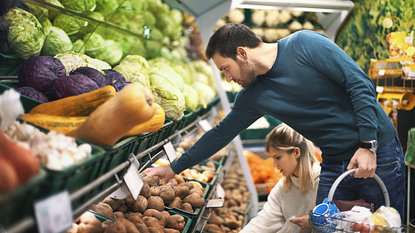Factors contributing to increased food prices are on both sides of the Canadian border
By Diego Flammini
Assistant Editor, North American Content
Farms.com
Canadians could expect to pay between 3 and 5 per cent more for certain foods at the grocery store, according to a new report from Dalhousie University.
The price of meat and vegetables is expected to jump between 4 and 6 per cent, according to Canada’s Food Price Report 2017. Prices of fruit could increase by 3 to 5 per cent, while prices of cereals, dairy and eggs could rise by 2 per cent. (The ideal rate of inflation for food prices is between 1 and 2 per cent each year, researchers say.)
Many factors could contribute to price increases – including Canada’s plan on carbon pricing, the report says.
“Livestock industries, particularly cattle, would be affected by this new regime and could increase the price of some food products,” the report said. “Such a system would indiscriminately inflate all food prices rather than impacting each group uniquely based on their actual greenhouse gas emissions.”

Another factors in the price increases could lie south of the border.
“The significance of Donald Trump’s victory in November cannot be overlooked,” the report said. Trump’s presidency “could increase the cost of food over the next few years. With food prices dropping in recent weeks in Canada, this could welcome news for the industry, but not so much for budget-conscious consumers.”
Ontario and British Columbia are expected to experience “above average” food price increases.
Quebec, Manitoba and Alberta could see ‘below average’ food price increases.
Saskatchewan is expected to see an average food increase.